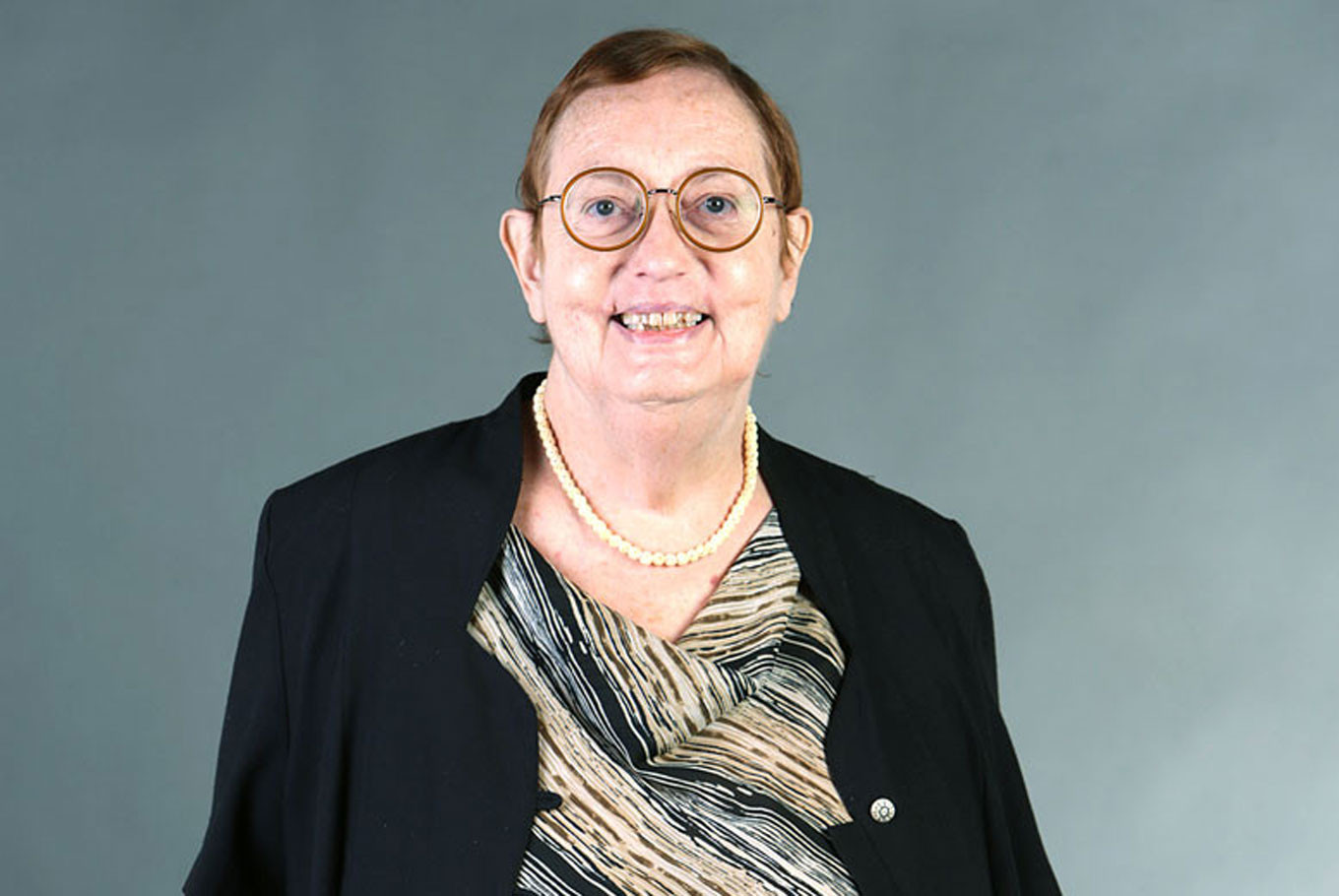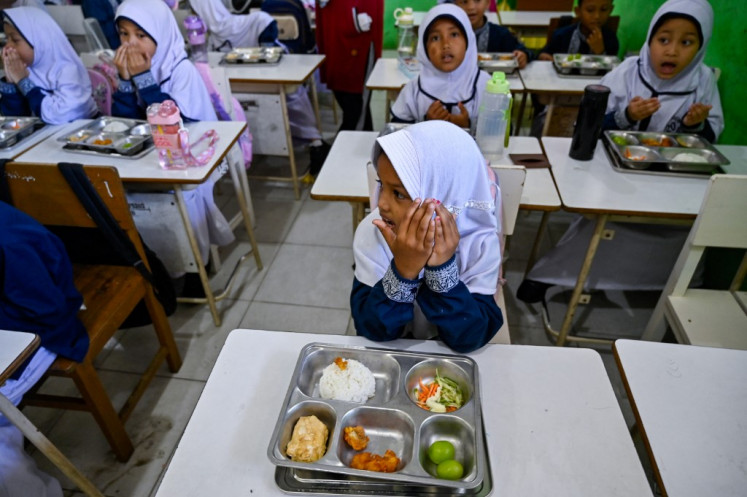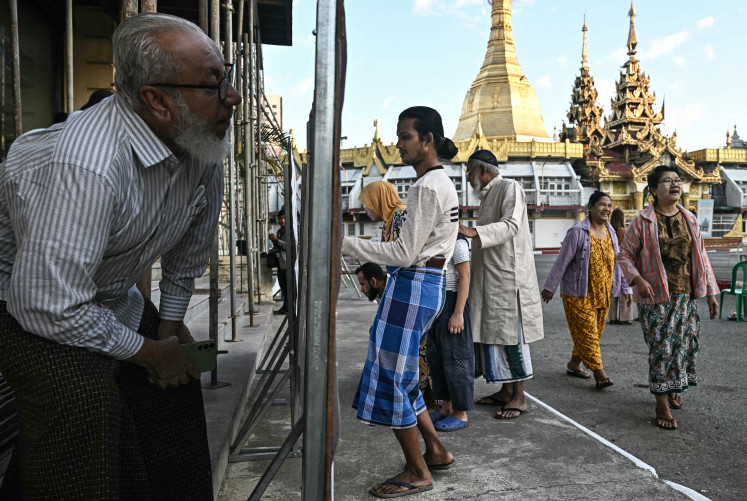Popular Reads
Top Results
Can't find what you're looking for?
View all search resultsPopular Reads
Top Results
Can't find what you're looking for?
View all search resultsMaggie, tough quality lady of the ‘Post’
Margaret Glade Rose Agusta had been the Post’s style master and she held authority in matters of English writing. She was persistent, if not hardheaded, but then, she was in charge of the language quality of the newspaper.
Change text size
Gift Premium Articles
to Anyone
Y
ou never wanted to get into an argument with Maggie. Over the years working with her in The Jakarta Post newsroom, that was one thing I learned. You would never win an argument with her, especially not when it came to language issues.
Margaret Rose Glade Agusta had been the Post’s style master and she held authority in matters of English writing. She was persistent, if not hardheaded, but then, she was in charge of the language quality of the newspaper.
On Thursday afternoon, it came as a shock for everyone in the newsroom to learn of her passing away. She was 69. Maggie, an American who had taken up Indonesian citizenship, had been our chief copy editor, or check editor as we call it in the Post, in the early years of the newspaper and later was one of the writing instructors at our learning division.
We had known of Maggie’s poor health over the last two years, but she had been coming to the office almost every single day because she loved the job too much. Her family tried to persuade her to quit or to work from home. The editors did not exactly try to let her go because we needed her.
Maggie had been an indispensable part of the Post, particularly through the growing pains of the early years of the newspaper.
She joined the paper in 1984, about a year after its launch. Then an eight-page and six-day daily publication, it was sufficient to have just one such editor.
When the Post began expanding its pages, to 12, 16, 24 and then to 32, and became a seven-day daily publication, her role expanded. (With the rise of the internet, the Post has since scaled down its print edition, now to 20 pages daily, devoting more resources toward online).
Those of us in the newsroom who were part of the expansion in the 1990s understood well her contribution. The quality of English was an important element of the success story of the Post. And it is one of the main reasons why we have survived this far when other similar ventures have failed.
Indonesia has an English-language newspaper, run and managed by Indonesian editors, that the country can be proud of, and one that is comparable with the best English-language newspapers in Asia.
Maggie in the 1990s built the check desk team, expanded its members as she saw fit, and with the news editors, created the editorial process to ensure quality English writing. And she and her team set about to create The Jakarta Post’s “style book”. She became the go-to person when it came to writing-style matters.
No newsroom functions without heated arguments. I recall the many arguments editors had with Maggie, particularly late nights close to deadlines. At times, our egos got the better of us, but we knew that we were all on the same side and that we had the newspaper’s best interest in mind as we argued over our differences.
The night editors had a print deadline to beat, Maggie was concerned about quality. We clashed almost every night. But she would not compromise on quality. We lost.
But this concern for English writing quality created the culture now fully embedded in the Post’s newsroom operations, long after she left the division.
Read also: What Maggie Agusta meant to 'The Jakarta Post'
The check editors’ desk has become an important and permanent feature in the Post’s newsroom. It is also probably one of the least appreciated components in the editorial process, since the members work in the back office, anonymous.
It is the reporters and the news editors who get the accolades from the readers although they could not have done it without the help of the check editors.
Maggie was more than a check editor, and her editing often went beyond the boundaries of her job description as she started fixing the editorial content. She had accumulated sufficient knowledge of the Indonesian political and cultural scenes after years of living in Indonesia, and through her marriage to the famed poet Leon Agusta (who passed away in 2015).
Maggie had other passions too. She was active in advocating for gender equality and she was one of the best translators of books from Indonesian to English.
But language undoubtedly was her deepest passion. She did not use her name in her email address but rather “bungabahasa”, which means the flower of language. Speaking of flowers, of course Rose was her middle name.
The check desk that she set up, the culture for quality writing in the newsroom and the style reference she helped build are among her legacies. Another is the dozens of journalists who endured her tough coaching to shape them into becoming better writers.
Maggie’s legacies will live on through The Jakarta Post and through the journalists and writers she coached.
__________________
The writer is a former chief editor of The Jakarta Post.










